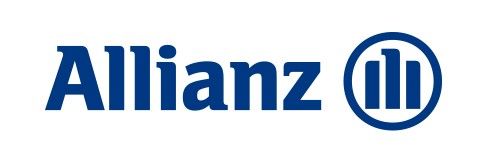
Press release -
One in five SMEs cuts insurance cover amid cost-of-living crisis
Small businesses identify inflation as biggest threat for 2023 in Allianz survey
Allianz research has found that 19% of small and medium businesses have reduced their insurance cover in the past 12 months and a similar proportion plan on doing the same in the coming year, amid rising cost pressures.
Helen Bryant, director of digital trading at Allianz Commercial, comments: “This raises the risk of underinsurance and we’ll continue to work with our broker partners to ensure that our customers have the right level of protection, especially in these turbulent times.”
The 500 small and medium-sized entreprises (SMEs) surveyed by OnePoll said their biggest day-to-day challenges had to do with energy bills (53%), supply chain problems (35%) and late payments or unpaid invoices (30%).
They listed inflation and the cost-of-living crisis as their top threat for 2023 (64%), followed by the state of the UK economy in general (33%) and the impact of Brexit (25%).
Overall, 71% of respondents said the cost-of-living crisis is having a negative impact on their business. SMEs say they need energy support (49%), cash flow measures (39%) or tax breaks (39%). In the last 12 months, 46% of them have changed the way they operate in order to save energy.
Over the same period, 26% of SMEs increased the number of products or services they offer. However, 60% kept their insurance cover unchanged, while 21% increased it and 19% reduced it. The proportions are the same regarding their plans for the next 12 months.
Helen Bryant adds: “SMEs are having to be increasingly agile and adapt their business models or modify their operations. These agile entrepreneurs need to let their insurance provider know when they've made significant changes as this could lead to gaps in cover. In this regard, brokers play a crucial role: their expertise will help businesses have the right protection for their changing needs. In this way, the insurance industry can really support business diversification.”
| Small and medium businesses say the top four* challenges they’re facing day-to-day are: | |
| Energy bills | 53% |
| Supply chain problems (delays, shortages) | 35% |
| Late payments, unpaid invoices | 30% |
| Competition | 27% |
| *Respondents could choose up to three answers in a list of nine. This table displays statistically significant results. |
| SME decision makers identify these as the three** biggest threats to their business in 2023: | |
| Inflation, cost-of-living crisis | 64% |
| The state of the UK economy in general | 33% |
| The impact of Brexit | 25% |
| **Respondents could choose up to three answers in a list of 11. This table displays statistically significant results. |
SMEs say the cost-of-living crisis is having | |
A positive impact on their business | 13% |
No impact on their business | 16% |
A negative impact on their business | 71% |
In the current economic situation, SMEs say they need | |
Energy support | 49% |
Cash flow measures | 39% |
Tax breaks | 39% |
Help with hiring/training people | 22% |
Other | 2% |
None | 16% |
Who SMEs think should help their business | |
The government | 61% |
Customers | 27% |
Their bank | 27% |
The council | 26% |
Local community | 20% |
Their insurer | 13% |
Other | 1% |
Not sure, no one in particular | 14% |
In the context of rising energy prices, here is what SMEs have done over the past 12 months |
46% have changed the way they operate in order to save energy |
23% have insulated their premises |
23% have installed solar panels or other tech to generate renewable energy |
12% have changed vehicles or transportation methods |
33% have done none of the above |
In the past 12 months, SMEs have | |
kept their insurance cover unchanged | 60% |
increased it | 21% |
reduced it | 19% |
In the next 12 months, SMEs plan on | |
keeping their insurance cover unchanged | 60% |
expanding it | 21% |
reducing it | 19% |
ENDS
About the research
OnePoll surveyed decision makers at UK SMEs (one to 249 employees). Between 23 and 28 February, 500 respondents answered the online survey.
Broker webinar on Supporting SMEs through challenging times. Helen Bryant and Lee Watts, directors of digital trading and technical claims respectively, discuss emerging trends and general market insights, and share how brokers can help small businesses thrive. Watch on the Allianz webinars page.
Topics
Regions
About Allianz Holdings plc
Allianz Holdings plc is the non-regulated holding company which owns the principal insurance operations of Allianz SE in Great Britain including Allianz Insurance
About Allianz
The Allianz Group is one of the world's leading insurers and asset managers with 126 million* private and corporate customers in more than 70 countries. Allianz customers benefit from a broad range of personal and corporate insurance services, ranging from property, life and health insurance to assistance services to credit insurance and global business insurance. Allianz is one of the world’s largest investors, managing around 716 billion euros** on behalf of its insurance customers. Furthermore, our asset managers PIMCO and Allianz Global Investors manage nearly 1.8 trillion euros** of third-party assets. Thanks to our systematic integration of ecological and social criteria in our business processes and investment decisions, we are among the leaders in the insurance industry in the Dow Jones Sustainability Index. In 2022, over 140,000 employees achieved total revenues of 152.7 billion euros and an operating profit of 14.2 billion euros for the group.
These assessments are, as always, subject to the disclaimer provided below.
*Including non-consolidated entities with Allianz customers.
** As of June 30, 2022
Cautionary note regarding forward-looking statements
This document includes forward-looking statements, such as prospects or expectations, that are based on management's current views and assumptions and subject to known and unknown risks and uncertainties. Actual results, performance figures, or events may differ significantly from those expressed or implied in such forward-looking statements. Deviations may arise due to changes in factors including, but not limited to, the following: (i) the general economic and competitive situation in the Allianz Group's core business and core markets, (ii) the performance of financial markets (in particular market volatility, liquidity, and credit events), (iii) the frequency and severity of insured loss events, including those resulting from natural catastrophes, and the development of loss expenses, (iv) mortality and morbidity levels and trends, (v) persistency levels, (vi) particularly in the banking business, the extent of credit defaults, (vii) interest rate levels, (viii) currency exchange rates, most notably the EUR/USD exchange rate, (ix) changes in laws and regulations, including tax regulations, (x) the impact of acquisitions including and related integration issues and reorganization measures, and (xi) the general competitive conditions that, in each individual case, apply at a local, regional, national, and/or global level. Many of these changes can be exacerbated by terrorist activities.
No duty to update
The Allianz Group assumes no obligation to update any information or forward-looking statement contained herein, save for any information we are required to disclose by law.





